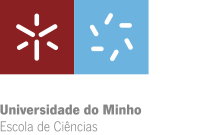Objectives and methods: Fungal infections have significant impacts on public health, food security, and the environment. The World Health Organization (WHO) recognized the importance of fungi as pathogens by publishing a list of priority fungal species (WHO Fungal Priority Pathogens List - FPPL) and emphasizing the need for research and dissemination in this field.
Environmental changes, including climate change and habitat destruction, play a crucial role in the emergence and spread of fungal infections, influencing their distribution, virulence, and host range. Due to human interference in natural ecosystems, we have witnessed the emergence of new fungal infections, the spread of known fungal infections to new regions of the planet, and the worsening of existing ones.
The concept of One Health recognizes the interconnectedness between human, animal, and environmental health, emphasizing the need to address health issues holistically. Therefore, adopting a One Health approach that integrates the study of fungal diseases with environmental issues is challenging. This integration can be achieved by studying the impact of environmental changes on the emergence and dissemination of fungal infections through real-case studies.
The concept of One Health is well integrated with the mission of the Department of Biology, aiming to provide students with the latest advances and research strategies in understanding biological issues such as human fungal infections holistically. This includes examining habitat destruction, climate change, and human activities affecting natural ecosystems and their consequences on the global distribution and virulence of fungal infections.
The course aims to provide participants with a solid scientific and technical education, including objectives such as: (i) Presentation of molecular and physiological mechanisms that render fungi successful pathogens; (ii) Identification of methods used to identify fungal species; (iii) Understanding of antifungal resistance mechanisms and virulence mechanisms; (iv) Exploration of Next-Generation Sequencing methods to determine how environmental changes can interfere with the aforementioned aspects. Additionally, (v) fostering training in cross-cutting skills such as oral and written expression, teamwork, communication techniques, and critical thinking.
This course will combine various teaching and learning methodologies: Theoretical lectures and debates; Case studies; Practical experience; Invited speakers; Development of a research project.
Field of Education: Biology
Level of Study: Master
Physical (in person) start/end date: 20th-24th of May 2024
Country of Venue: Portugal
City of Venue: Braga
Physical component description: The course aims to introduce the concept of One Health and illustrate how habitat destruction, climate change, and human activities affecting natural ecosystems can impact the distribution and virulence of fungal infections. Theoretical-practical sessions.
Virtual component description:
It covers fungal virulence factors, host defenses and resistance strategies, group analysis of case studies, introduction to next-generation sequencing methods for fungal genomic analysis, and genetic diversity in response to environmental changes.
Main Teaching/Training Language: English
Number of ECTS Credits Awarded: 6 ECTS
Teachers/Trainers delivering the Programme: Experienced national and international professors and researchers, including from the partner institutions.
Partner institutions: University of Minho, Albacete University, University Leuven, University of Padova, University Claude Bernard Lyon 1, University of Wrocław.
This course is organized by the Research Centre of Molecular and Environmental Biology (CBMA) and the Department of Biology of the School of Sciences of UMinho.


